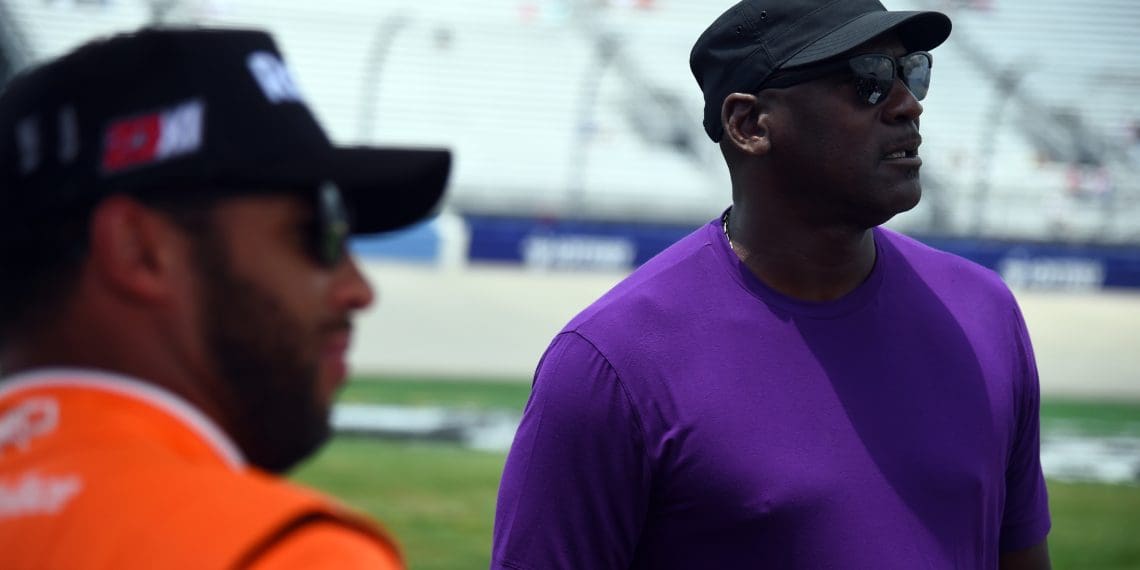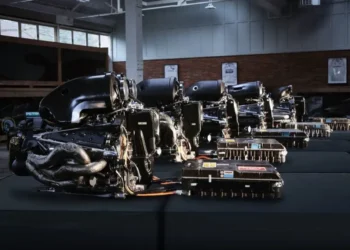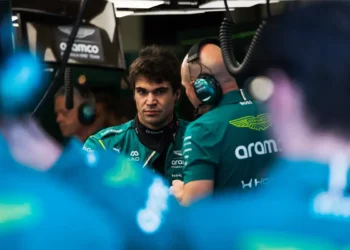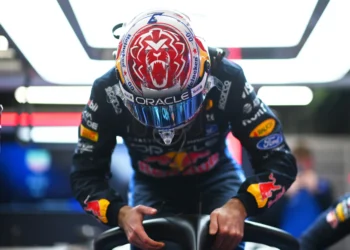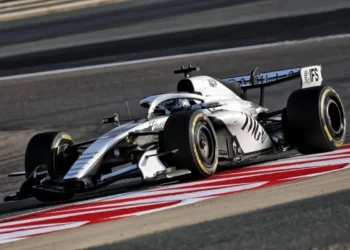The NASCAR world has been left stunned by the bold legal action taken by 23XI Racing and Front Row Motorsports. These two teams, the only ones who refused to sign the 2025-2031 charter deal, have filed a federal anti-trust lawsuit against NASCAR, alleging monopolistic practices and challenging the sport’s long-standing governance style. This lawsuit has the potential to reshape NASCAR’s business model and governance structure, questioning its iron-fist control that has gone unchallenged since its inception.
Despite the gravity of the lawsuit and the backlash aimed at the France family, NASCAR’s governing body has chosen a strategy of radio silence. Not a single public statement has been released acknowledging the lawsuit or addressing the concerns raised by the teams. This lack of transparency has raised eyebrows, with fans and industry insiders alike questioning NASCAR’s stance and its handling of the situation.
Dodging Questions: NASCAR CEO Jim France’s Elusive Response
NASCAR CEO Jim France was approached by the media for a comment ahead of the Talladega playoff race. However, France deftly avoided the issue, sidestepping all questions related to the lawsuit. His response was non-committal:
“Excited about our championship battles and looking forward to a fantastic race today.”
The statement focused on the championship and race excitement, completely ignoring the brewing legal storm. This evasive approach has only added fuel to the speculation surrounding NASCAR’s strategy and the possible implications of the lawsuit.
Drivers Weigh In with Diplomatic Responses
While NASCAR’s management remains tight-lipped, drivers have taken a more cautious approach when questioned about the lawsuit. William Byron, one of Hendrick Motorsports’ promising talents, provided a nuanced perspective. While not delving into specifics, he acknowledged the potential for positive change:
“I don’t know. I won’t really go into details, but overall the perspective of the sport and what they’re fighting for and what that means, I think in the long term I’d like to see our sport become more prosperous. I feel like in watching other professional sports and where we could be, I’m excited for that so hopefully that comes to fruition.”
Byron’s comments reflect a sentiment shared by many within the NASCAR community: there is untapped potential in the sport that is being suppressed. The lawsuit, he suggests, might be the catalyst for unlocking this potential, paving the way for a more prosperous and balanced future for all stakeholders involved in NASCAR.
The Stakes: Will the Lawsuit Force NASCAR to Change?
The anti-trust lawsuit isn’t just a legal battle; it’s a challenge to NASCAR’s business model and its treatment of teams. As the sport faces increasing scrutiny, many believe that this lawsuit could usher in structural changes that may lead to better revenue distribution and improved opportunities for teams.
The lack of comment from NASCAR, especially with the gravity of the situation, leaves much to be speculated. Will they finally respond and negotiate, or will they maintain their silence and risk further backlash? The racing community waits, and the future of NASCAR’s governance and fairness hangs in the balance.

